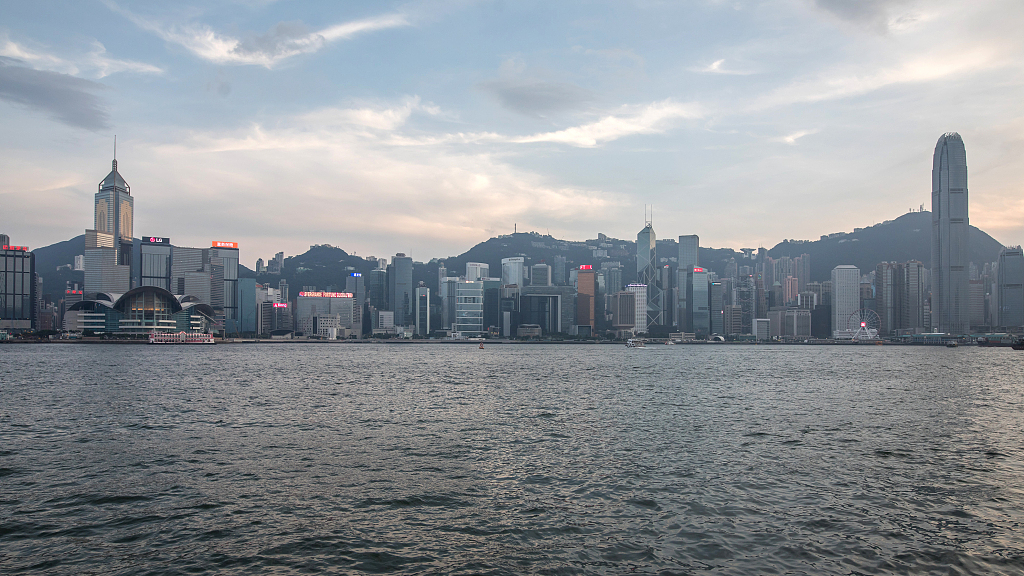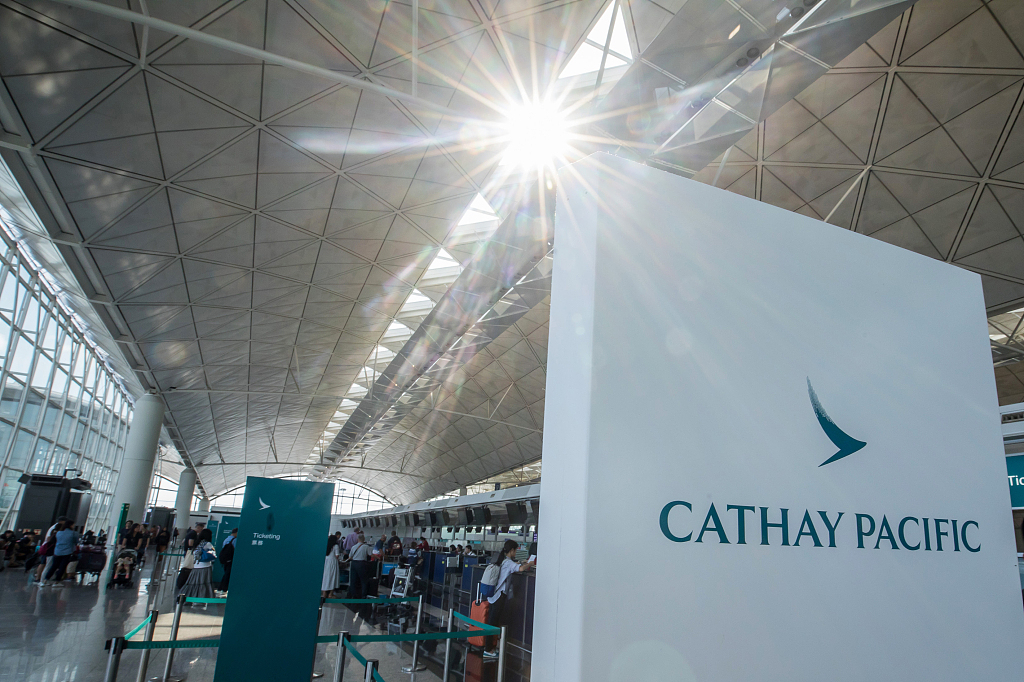

Editor's note: Huang Jiyuan is an opinion editor with CGTN Digital. The article reflects the author's opinions, and not necessarily the views of CGTN.
In a recent article published by The Economist titled "Why China's assault on Cathay Pacific should scare all foreign firms," the author has railed against the resignation of the CEO of Cathay Pacific by claiming it is the result of Beijing's demand. "A climate of fear now pervades it," these are the author's words to describe the company. And based on the author's view, they might've just described every company who's doing business with China. The article claims that foreign companies are fearful of losing the Chinese market and that they have to bow down to pressure from Beijing to survive and maintain their access.
I first wondered how such a reputable magazine could have published an article of such a simplistic world view. Then it hit me: this article is just the latest episode in a trend that has been going around for a while. It is hard to pinpoint exactly when did it start gaining traction, but the narrative that "China is assaulting companies" has indeed become mainstream. It has become a popular educated guess to assume that Beijing is behind every company's apology to its customers.

Rupert Hogg, former CEO of Cathay Pacific Airways Lt, resigned his post over the recent controversies surrounding the company on August 16, 2019. /VCG Photo
This might be a laughable insinuation if it wasn't so dangerous. A blanket assumption like this risks blinding people to moral judgments. The question of "what did the company do that it needed to apologize" no longer gets any answers. Whether the company has done the right thing or not is not of concern. Instead, the focus has shifted to Beijing. And once Beijing is involved, the dynamic changes. It turns the company from a wrong-doer to a victim of political pressure.
This is evident in the article by The Economist. When the author invokes the recent incidents with Versace, Coach and HSBC to support his argument for Cathay Pacific, not once has the author asked the question of whether what these companies have done is right or proper. Not once has the morality of disrespecting a country's territorial integrity, leaking customer's personal information, or aiding and participating in illegal activities been discussed. And not once has the author even given a hint to whether these questions were asked or not.
My bet is on a "no". Instead, to describe the apologies for not respecting a country's territorial integrity, the author has chosen the word "nauseating." And to defend Cathay Pacific CEO's resignation, the author has chosen to use "protecting the market access" as an excuse. And to legitimize those remarks, the author has chosen to lump all foreign companies together as if they were all on the receiving end of what the author calls "Beijing's cross-hairs." It is not the incidents themselves that matter. Instead, the attention is solely focused on the apologies. And these apologies have automatically become the result of the pressure from Beijing.

The West's portrayal of Cathay Pacific CEO's resignation is staggeringly biased and dangerous. /VCG Photo
It is ingeniously convenient to use Beijing as a scapegoat. And this is precisely the role that Beijing has been pushed on in this whole narrative that "China is assaulting companies." Adding the government and politics into the mix shuns the morality of things. Once morality is gone, responsibility-takers no longer take responsibilities. And using the Chinese government as a scapegoat is, in fact, absolving the companies' wrong-doings and the necessity to be accountable for those actions by telling the world that the apologies are the result of politics, not of responsibility. Once everything has turned political, accountability and responsibility look like the result of government pressure. And who doesn't like to play the victim in that?
It is scary how fast such an act becomes a mainstream treatment. It is scary to see indiscriminate blame on a government for foreign companies' wrongdoings. And what makes the entire episode more frightening is that the West has drifted comfortably into this territory of playing the victim. Rather than trying to really understand the reason why these companies are blamed, people just point their fingers to the government.
Maybe it is people's natural inclination to avoid taking responsibilities, maybe it is their deep-seated bias towards political systems different from theirs, or maybe it is just their arrogance to never try to understand another culture and its values. But for whatever reason, politicizing business conducts will only make their actions more reckless, and in turn, sow more conflict.
Cathay Pacific has released a statement on August 24 stating that it has no tolerance toward employees who support or attend illegal protests. And the West and Western media are already drumming up the so-called "white terror" and government pressure sentiment. For years, the West has accused China of politicizing everything, and now they are the ones doing exactly what they've accused China of.
Funny, isn't it? Maybe it is a laughable matter, after all.
(If you want to contribute and have specific expertise, please contact us at opinions@cgtn.com.)

Copyright © 2018 CGTN. Beijing ICP prepared NO.16065310-3
Copyright © 2018 CGTN. Beijing ICP prepared NO.16065310-3